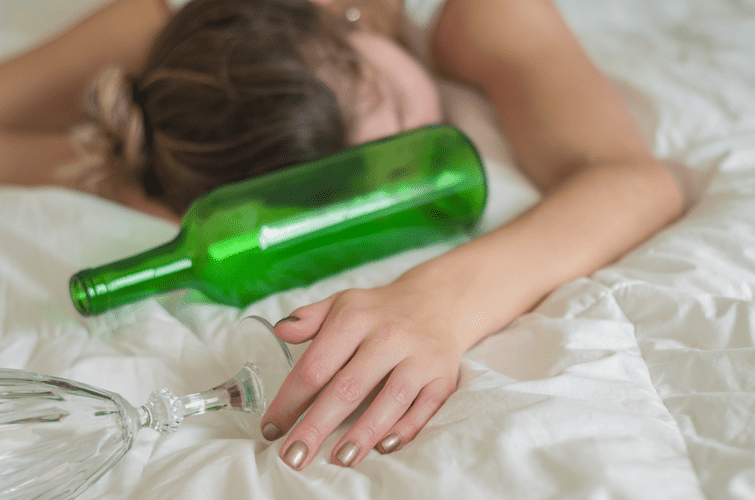Content
In the middle stage, the alcoholic is unknowingly physically dependent on alcohol. He or she simply finds that continuing to use alcohol will prevent the problems of withdrawal. By the time an alcoholic is in the late stage, he or she is often irrational, deluded, and unable to understand what has happened. There is no clear line between the early and middle stages of alcoholism, but there are several characteristics that mark a new stage of the disease.
- Initially, disulfiram was given in larger dosages to produce aversion conditioning to alcohol by making the patients very sick if they drank.
- An inpatient or outpatient rehab program for alcoholism will offer a variety of treatment therapy options.
- For many, continued follow up with a treatment provider is critical to overcoming problem drinking.
- Adherence usually requires adequate social support, such as observation of drinking.
- Where the rehabilitation needs of an individual no longer require an inpatient hospital setting, coverage should be denied on the basis that inpatient hospital care is not reasonable and necessary as required by §1862 (a)(l) of the Act.
Watching a family member struggle with a drinking problem can be as heartbreakingly painful as it is frustrating. But while you can’t do the hard work of overcoming addiction for your loved one, your love and support can play a crucial part in their long-term recovery. Cravings for alcohol can be intense, particularly in the first six months after you quit drinking. Good alcohol treatment prepares you for these challenges, helping you develop new coping skills to deal with stressful situations, alcohol cravings, and social pressure to drink. It occurs when the disease has destroyed normal liver tissue, leaving nonfunctioning scar tissue in its place.
Treatment of and Rehabilitation for Alcohol Use Disorder
It’s also called alcohol dependence, alcohol addiction or alcohol abuse. For serious alcohol use disorder, you may need a stay at a residential treatment facility. Most residential treatment programs include individual and group therapy, support groups, educational lectures, family involvement, and activity therapy. Treatment for alcohol use disorder can vary, depending on your needs. Treatment may involve a brief intervention, individual or group counseling, an outpatient program, or a residential inpatient stay. Working to stop alcohol use to improve quality of life is the main treatment goal.
These assumptions comprise the basis of the philosophical system of dialectics. In practice, an individual or group DBT session will involve learning to live in the present instead of dwelling on the past, managing emotions and distress, and practicing honest communication. Ultimately, DBT is designed to help patients find emotional balance and embrace positive change. The method is dialectical because the practitioner who developed it wanted patients to be able to synthesize change and acceptance of the past to create a better life.
Post Treatment
The incidence of alcohol use disorder is higher in biologic children of people with alcohol problems than in adoptive children in a given family (and also higher than in the general population). There is evidence of genetic or biochemical predisposition, including data that suggest some people who develop alcohol use disorder are less easily intoxicated (ie, they have a higher threshold for central nervous system effects). With less than one percent of those seeking help for alcohol dependence receiving a prescription, medication is underutilized. Medication for alcoholism can offer patients an advantage for their recovery, especially in a real-world setting.”

In such cases, however, there should be documentation by a physician which substantiates that a longer period of detoxification was reasonable and necessary. Following detoxification a patient may be transferred to an inpatient rehabilitation unit or discharged to a residential treatment program or outpatient treatment setting. It’s important to note that online therapy may not be a suitable option for some people with alcoholism. This includes those who may be battling severe sober house alcohol withdrawal symptoms, or who may be struggling with a co-occurring metal health disorder such as depression or anxiety. Furthermore, it is always recommended that detoxing be done under medical supervision, as alcohol withdrawal can have potentially life-threatening side effects. Initial treatment of severe withdrawal may require intravenous benzodiazepines (e.g., 2 to 4 mg of lorazepam or 5 to 10 mg of diazepam) and additional dosing as needed to control symptoms.
Find support groups
Alcohol recovery is a process—one that often involves setbacks. A drinking relapse doesn’t mean you’re a failure or that you’ll never be able to reach your goal. Each drinking relapse is an opportunity to learn and recommit to sobriety, so you’ll be less likely to relapse in the future. Build a sober social network – If your previous social life revolved around alcohol, you may need to make some new connections.